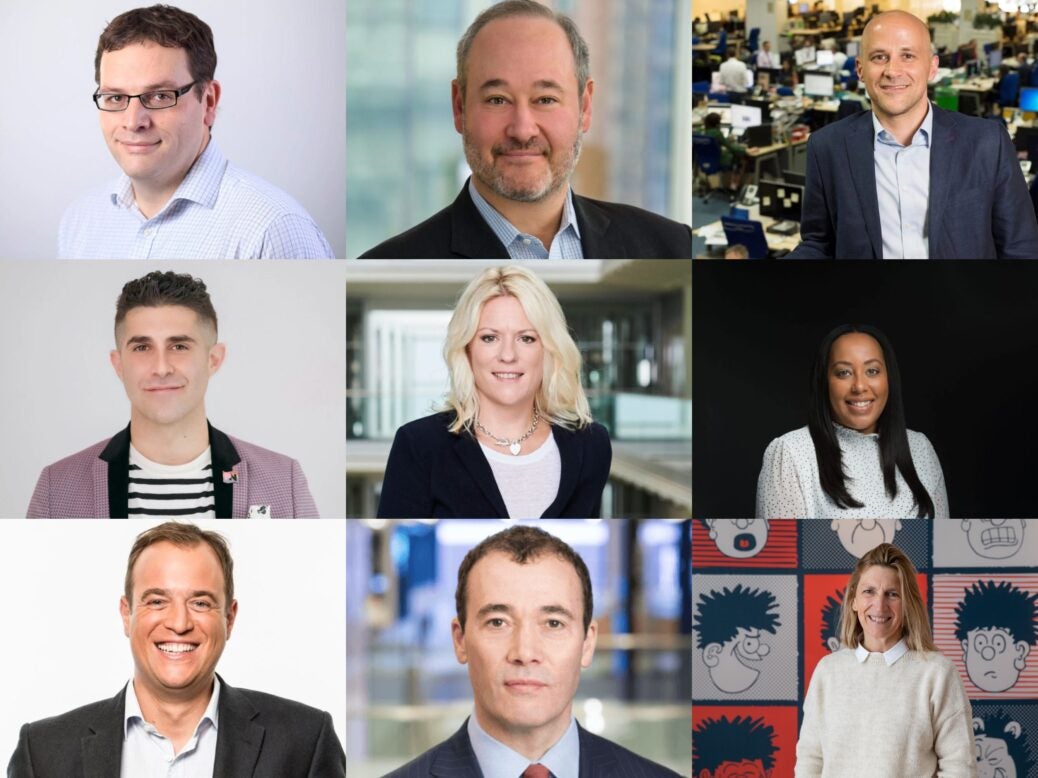
Press Gazette asked a host of UK and US news industry leaders to share their predictions for 2023 and reveal how they plan to tackle the big challenges that lie ahead.
No less than nine CEOs answered the call, among 18 leading executives: from Aja Whitaker-Moore at Axios to Will Lewis at the News Movement. What follows is an indispensable guide to how news businesses can succeed in 2023.
We start with four key themes and then break down all 18 comments.
Quick links here to all 18 contributors:
Aja Whitaker-Moore, Axios executive editor
Benjamin Cohen, Pink News chief executive
Charles Yardley, Evening Standard chief executive
Christian Broughton, The Independent managing director
Cristina Nicolotti Squires, Sky News director of content
David Higgerson, Reach chief digital publisher
David Skok, The Logic chief executive
Erika Allen, Washington Post head of audience strategy and growth
Greg Williams, Wired deputy global editorial director
Jon Birchall, Ladbible Group director of editorial strategy
M Scott Havens, Bloomberg Media chief executive
Nick Hugh, Telegraph Media Group chief executive
Rachel Corp, ITN chief executive
Rebecca Miskin, DC Thomson chief executive
Sean Griffey, Industry Dive chief executive and co-founder
Stephen Dunbar-Johnson, New York Times president, international
Victoria Wakely, Bloomberg UK national editor
William Lewis, The News Movement chief executive and founder
1. ‘Investing in good journalism is good business’ – even during a recession
The global news industry is under no illusion: we are in challenging times economically and things could get worse in 2023. But news publishers we heard from are confident they have ways of surviving and thriving through this period.
Stephen Dunbar-Johnson, president, international, of The New York Times spoke of his publisher’s desire to make itself “the essential subscription”. In 2022, the NYT added to its offering and brand by acquiring Wordle and The Athletic. Another selling point, said Dunbar-Johnson, is news. “Good journalism is good business – they are mutually reenforcing,” he said. “That will not change in 2023 and we believe strongly that the continuing investment in our newsroom will be integral to our ability to grow our digital subscription base and to continue to engage and retain the considerable number of subscribers we already have.”
The chief executive of Bloomberg Media, M Scott Havens, also spoke of the need to retain a good product through economic turmoil. “As we head into 2023, customer retention – brand partners, viewers, readers and and subscribers – will become media’s primary challenge,” he said. “In the case of a prolonged recession, publishers must position themselves as ‘must have’ or ‘must run with’ not a ‘nice to have’ or ‘nice to include’ – showing real value to advertisers and consumers. Ultimately, only those media companies that can achieve this will be able to grow, or in the longer run, exist.”
Nick Hugh, the chief executive of Telegraph Media Group, said: “Whilst growth will be harder won, we will continue to offer subscribers real value from their subscription through quality journalism,and we will look to grow our base in the UK and beyond. Our investment in our journalism and our product portfolio will continue.”
2. News avoidance may be bigger challenge than recession and big tech
As reported extensively by Press Gazette in 2022, news avoidance is a growing issue with which the media sector must contend. This problem is on the minds of several large publishers as we head into 2023.
Rachel Corp, the chief executive of ITN, which makes news programmes for ITV, Channel 4 and Channel 5, said that to tackle news avoidance, “we must continue to deepen our connections with the many and diverse communities around the UK in order to authentically reflect their stories; we must dig out the positive stories and we must continue to use our familiar onscreen faces and our trusted journalism to ‘bring the truth to life’.”
David Higgerson, chief digital publisher of Reach, identified news avoidance as a bigger issue than a recession and dealing with tech giants. He said: “My attempt to solve it means paying more attention to, well, attention. As in attention time. We know people are spending more time than ever online, but research constantly tells us more and more people believe they are actively avoiding news.
“Worryingly, I found myself doing that at one point this year and I know other journalists who did the same. The world is gloomy and sometimes the gloom can become too much. It’s impossible to avoid the news, but it is easy to stop inviting it into your life so often.
“The answer lies in being part of the solution. How can we be useful in people’s lives? Useful doesn’t win many awards (other than maybe at SEO awards). But if you’re useful, you’re relevant. And if you’re relevant, you can strike up a conversation about the things you think people need to know about as well as the things you know they’re interested in.”
Erika Allen, head of audience strategy and growth at The Washington Post, also spoke about techniques for attracting time and attention from readers. “Audiences value authentic connections that feel relatable and relevant to their lives,” she said. “As newsrooms look to attract new readers and compete for their time and attention, they must look to build connections by listening to what they want and seeking them out natively. More specifically, this means introducing them to our talent, processes (when appropriate) and meeting them where they are at, whether it be in their own inbox with voice-y newsletters or on social media or other emerging platforms where people are looking to connect or be informed.”
3. Reaching Gen Z vital for future of news
While the urgent need to reach young, increasingly disengaged audiences has been discussed for years now, it has felt like there has been some innovation on that front this year and several of our respondents raised it as something they are thinking keenly about right now.
Ladbible Group director of editorial strategy Jon Birchall suggested diverse businesses and smarter audience intelligence are key: “For us to build a media that is essential, inclusive, and as such commercially viable, for 2023 and beyond, we must listen to youth audiences and empower young talent to fundamentally redefine what news is and the role it plays for the next generation.”
William Lewis, chief executive of start-up The News Movement, said it was “vital” to get “factual and trusted news” to Gen Z (currently aged up to 25) on the platforms where they spend their time as the next US election approaches.
4. Changing relationships with tech platforms will be key
This year has been a turbulent time for the biggest tech companies and this will have an impact on publishers in 2023.
Pink News chief executive Benjamin Cohen said: “2023 will be one of continued changes to the relationship with the social platforms, particularly Twitter,” pointed to turmoil at the microblogging site since it was bought by Elon Musk. Twitter has axed its trust and safety council and since Cohen submitted his answer to our question, Musk has been criticised for suspending journalists and briefly banned links to competitor sites.
“As Twitter’s moderation policies change, PinkNews like many other publishers will need to consider the brand reputation risks of our content being potentially seen alongside content that doesn’t align to our mission or the LGBTQ+ community,” Cohen said.
Others pointed to the changing use of the social platforms. David Skok, chief executive of The Logic in Canada, said: “The drop in tech companies’ ad revenue reflects a fundamental shift in user behaviour. The fourth wall has been broken.”
Reach’s chief digital publisher David Higgerson and ITN chief executive Rachel Corp both flagged the need to speed up planned legislation to rebalance the relationship between platforms and publishers. Higgerson said: “Platforms which command significant attention time – like Meta, or Apple – need to be compelled to promote honest, accurate news and support the publishers who provide it.” Corp said the Digital Markets, Competition and Consumer Bill, which would take a stance on platforms’ market dominance, together with the Media Bill and Online Safety Bill would have “the power to shape the fortunes and future of public service media in the UK for decades to come”.
Scroll down to see the full answers from all 18 participants:
What do you think the biggest challenge of 2023 will be and how do you plan to tackle that?
Aja Whitaker-Moore, Axios
Executive editor
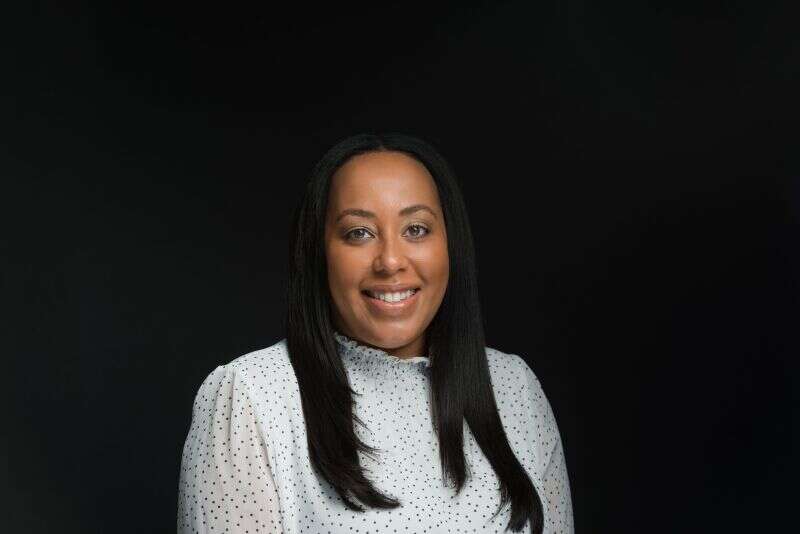
- Challenge: The war for attention and against misinformation is only intensifying. This isn’t a new problem but it is getting worse. We are seeing this play out daily in the battle for the soul of Twitter as the defacto town square.
- Solution: Axios is ruthless in our commitment to Smart Brevity in our journalism by providing only essential and distinctive news on our website, newsletters and podcasts. We’re also committed to being an unbiased and fact-based media organisation
- Challenge: Rebuilding trust in media
- Solution: Axios is making a massive bet that we can transform local journalism by creating a sustainable and trusted model that no one else has been able to achieve. Doing so means meeting people where they are, where they live, where they work and building trust that Axios can help guide them. We have the same mission in building Axios Pro where we can build trust with subscribers who rely on our essential journalism to make career decisions. And all of that comes full circle to build trust with our National audience.
Benjamin Cohen, Pink News
Chief executive
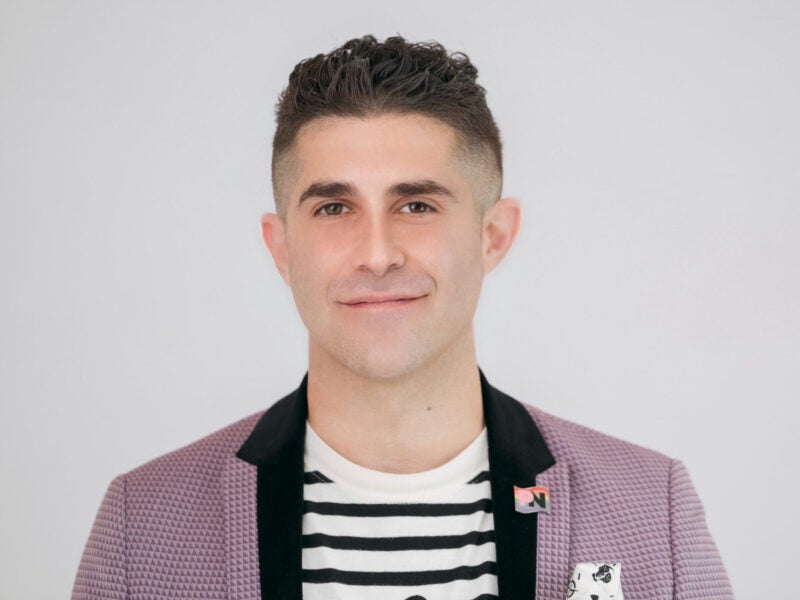
2023 will be one of continued changes to the relationship with the social platforms, particularly Twitter. As media, we are going to have to decide what exactly our relationship with Elon Musk’s Twitter should be. PinkNews is acting very much ‘business as usual’ and continuing to post news content on Twitter but we have had to pause some commercial campaigns due to run for partners on Twitter. Going forward, will brands reallocate these budgets to our channels on Snapchat, Meta and Tiktok or will they decide to still run on Twitter and end the current pause?
As Twitter’s moderation policies change, PinkNews like many other publishers will need to consider the brand reputation risks of our content being potentially seen alongside content that doesn’t align to our mission or the LGBTQ+ community.
Charles Yardley, Evening Standard
Chief executive
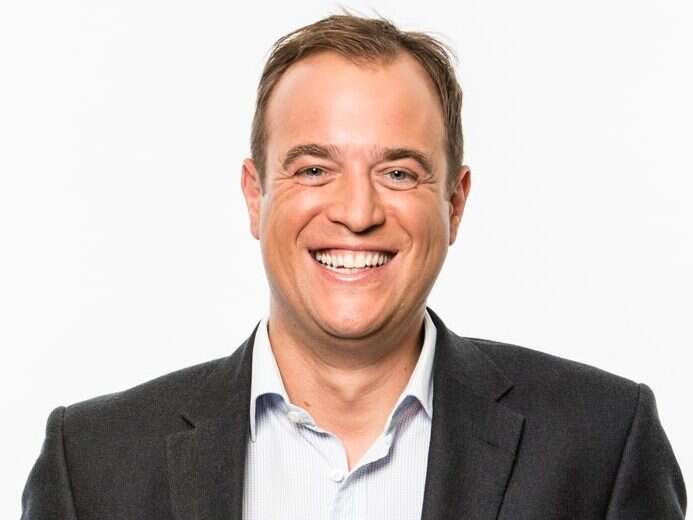
While it feels refreshing to be going into a new year with more certainty about the ability of our audience to move around London, there’s no doubt that we’re operating in a challenging industry environment. With a bleak economic outlook for the early months of 2023 it remains incumbent upon all news brands to develop strategies to diversify revenue streams beyond solely print. One of the most pressing challenges I see is how to continue to do this, while also ensuring that the multi-platform environment remains relevant, authentic and aligned to our master brand and mission.
Amid the unpredictable landscape of the past three years, we’ve accelerated the diversification of the Evening Standard’s revenue model to help shape our future. We have made significant investment in our diversified offering which has included rebuilding the CMS, expanding our newsletter strategy and improving distribution, improving dwell on video and audio content.
Digital revenues have increased by 9% year-on-year and our award-winning in-house creative content agency Studio 27 is going from strength to strength with revenues up 50% year-on-year, due to major campaigns with the likes of AXA and Berghaus. ES Magazine specifically is also showing a 66% growth in revenue year-on-year and the Standard’s podcasts were listened to over 5.5 million times between January and November 2022.
Elsewhere, our Live events business also continues to provide alternative touchpoints for our audience. The launch of SME XPO brought our business credentials to the fore and will be back in 2023, bringing together thousands of business leaders at ExCel London, in April. In November, we continued our drive for a cleaner, greener London by hosting our Plug It In Summit with Mayor of London, Sadiq Khan, as part of a multi-channel campaign around electric vehicles, backed by major commercial partners including Uber and Polestar.
This has resulted in growth in our cross platform reach, with 5.4 million people now engaging with Evening Standard content on a weekly basis. Importantly, each weekday the Evening Standard reaches twice as many 25–44 year olds as its closest national competitors.
But with all these exciting new initiatives we are constantly questioning how we can remain aligned with The Standard’s core identity and mission – to deliver the quality content that our audiences demand. For nearly 200 years, The Standard’s purpose has been to act as a voice for London and to tell the stories of this incredible city on both a local and a global stage. As long as everything we do across all our platforms reflects that north star, I know that our brand will remain resilient in 2023 and beyond.
Christian Broughton, The Independent
Managing director

I can’t wait for the New Year challenge of taking Independent TV to the next level. The Independent always feels at its most exciting when it’s charting new waters and developing our TV proposition is top of the list.
From a journalistic point of view, Bel Trew’s video work in Ukraine for our world affairs strand, On The Ground, has been outstanding, and a bigger documentary is in the works. That will look great on our new CTV channels – we’re live on three platforms, Amazon Firestick, Google Playstore and Android/Sony, with Apple, Roku, LG and Samsung to follow in 2023.
So many people across the newsroom have embraced the move towards TV, from Miguel Delaney in Qatar, to the culture team’s series Binge or Bin, reviewing the programmes on streaming services. I have a soft spot for that show, as it was born in lockdown, when we were all desperate to find another great thing to watch. It was the point in time when Independent TV really began. In the year ahead, we need to build our US video team.
Commercially, our multichannel pitch – digital, TV and social media reach – is at the core of our most exciting partnerships, and we have some major new collaborations to unveil, starting in Q1. Big brands – such as E.ON, ITV and TikTok – have embraced our fresh approach to video, and appreciate that the creativity in our Independent TV programming comes right from the heart of the organisation, both editorially and commercially.
Cristina Nicolotti Squires, Sky News
Director of content
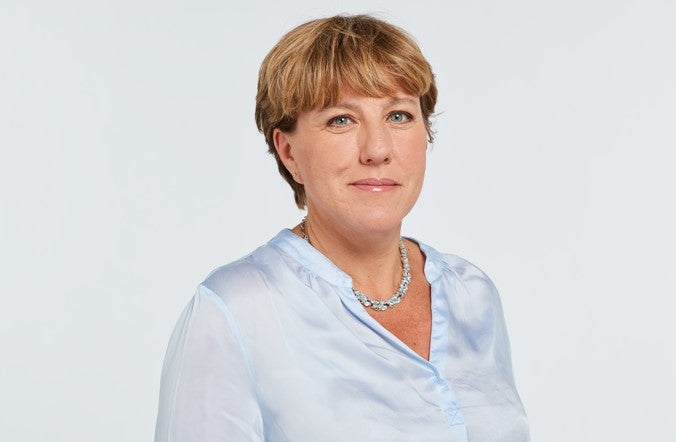
Who could have guessed what 2022 had in store for us? Global recession, war in Europe, the end of the Elizabethan era…
What I do know that 2023 will bring is more ways of delving into the numbers and taking a forensic look at the events shaping our lives. Bringing clarity in an uncertain world is part of our mission statement at Sky News. We are going to build on the excellent award winning work of our Data and Forensic Journalism team, adding more experts in data and OSINT to uncover what’s really going on for our consumers on screen and online. And with a lot of skill plus a little bit of luck we might win the British Journalism Awards News Provider of the Year again!
David Higgerson, Reach
Chief digital publisher

It is easy to focus on the probable recession and what that means for journalism when looking ahead to 2023, or to obsess about what the big traffic referrers will do next, but I think news avoidance is the bigger issue which trumps both.
The Reuters Institute has been flagging this for some time, and it’s a hot topic at conferences on both sides of the Atlantic. But solutions are few and far between. Perhaps there is no big-bang resolution we can all get behind here – but the challenge is very real.
My attempt to solve it means paying more attention to, well, attention. As in attention time. We know people are spending more time than ever online, but research constantly tells us more and more people believe they are actively avoiding news.
Worryingly, I found myself doing that at one point this year and I know other journalists who did the same. The world is gloomy and sometimes the gloom can become too much. It’s impossible to avoid the news, but it is easy to stop inviting it into your life so often.
The answer lies in being part of the solution. How can we be useful in people’s lives? Useful doesn’t win many awards (other than maybe at SEO awards). But if you’re useful, you’re relevant. And if you’re relevant, you can strike up a conversation about the things you think people need to know about as well as the things you know they’re interested in.
Useful doesn’t have to mean utility. We’re not talking just the chemist’s rota here. So much of what we do can be useful, we just need to make sure we’re trying to make it useful. Useful often serves as a gateway to other sorts of journalism too.
As an industry, we still spend too much time knocking lumps out of each other. Popular too often is dismissed as clickbait. Niche or in-depth lamented as indulgent. It doesn’t really matter what we think – it’s what readers, viewers, listeners (please, anything but users, a term which surely set us off in the wrong direction in the first place!) think which matters.
And the best way into that is by being useful. Get that right in 2023 and we will have gone a long way to solving the platform dilemma too.
But equally, we need support here too. The BBC’s plans for local news – allowing BBC Local Radio to begin withering on the vine while shifting around 100 jobs into digital to create the veneer of an improved local news service – has the potential to be very damaging to commercial news providers big and small. When the BBC is dominating search, thanks to its fast, ad-free pages, it will force out local publishers who invest far more in each and every community they serve than the BBC ever could – or would. The Government needs to act.
The balance between platforms and publishers – of all sizes – is still out of whack. The reward sits with the distributor, not the creator. Meta, in particular, seems unsure of what its relationship with news should be. To me, it’s simple – Meta’s platforms are richer, better experiences for all when honest, accurate information is supported to flow around it. Hopefully, the company will return to that view soon too.
The Government’s long-awaited Digital Markets Unit can play a big part here too, supporting news organisations of all sizes to get a fair deal. Platforms which command significant attention time – like Meta, or Apple – need to be compelled to promote honest, accurate news and support the publishers who provide it.
That’s why being useful matters. If readers find journalism useful, it becomes part of their daily life – and a compelling ingredient for any platform seeking to command a greater part of a person’s online day.
David Skok, The Logic
Chief executive
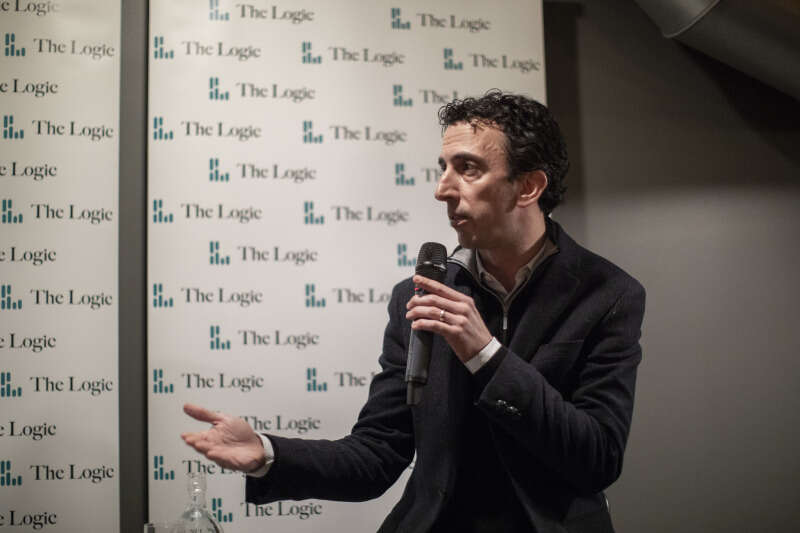
We are in a period of immense uncertainty and change, particularly for traditional news outlets. Our colleagues in the newspaper business face a challenging few quarters. With the price of newsprint up dramatically, increasing home delivery prices alongside inflation is causing consumers to rethink subscriptions. Publishers that have relied on digital-display advertising are also affected by an industry-wide slowdown in programmatic advertising, as reflected in the most recent Big Tech earnings reports.
The drop in tech companies’ ad revenue reflects a fundamental shift in user behaviour. The fourth wall has been broken.
People are recognising that:
- Twitter is less a town square than a gladiator arena, overseen by a private company trying to sell advertisements and $8 checkmarks against a discourse that’s increasingly angry and hateful;
- Facebook is no longer the place to share birthday wishes and news articles but now best serves as a marketplace for selling your couch to your neighbors;
- Alphabet is facing a decline in the volume and quality of the third-party cookie data vital to its programmatic advertising business. Once able to organise the world’s information through the web, it is also facing the threat of artificial intelligence able to answer questions and convey information better than a Google search.
A pessimist would argue this is all bad for letting readers discover new journalism. I would argue that as users grapple with these challenges, there’ll be a renewed interest in human-powered reporting, journalistic standards and practices and a flight to quality from readers seeking trustworthy journalism, well-edited and curated. I also believe there will be an increase in “ethical advertising” as brands look to get out of the social media mud.
Erika Allen, Washington Post
Head of audience strategy and growth

Newsrooms must foster real relationships with their readers, lean into their personalities.
Audiences value authentic connections that feel relatable and relevant to their lives. As newsrooms look to attract new readers and compete for their time and attention, they must look to build connections by listening to what they want and seeking them out natively. More specifically, this means introducing them to our talent, processes (when appropriate) and meeting them where they are at, whether it be in their own inbox with voice-y newsletters or on social media or other emerging platforms where people are looking to connect or be informed.
By giving readers a chance to connect with our personalities, it creates genuine bonds. After all, people connect with people and not with brands – these personalities don’t have to be bombastic but hearing from a person instead of a brand is a great way to develop trust, foster loyalty and support further connection with our readers.
Greg Williams, Wired
Deputy global editorial director
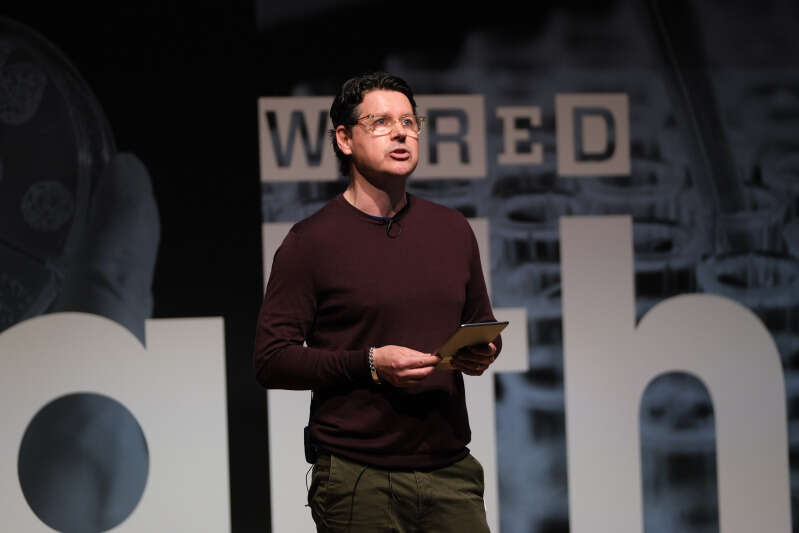
It’s become a cliche to say that it feels like the news cycle is speeding up every year, but 2022 really has been a year of seismic events. Putin’s war in Ukraine, spiralling inflation, surging energy costs, supply chain bottlenecks, the global semiconductor shortage, Sino-US relations, sluggish growth, constrained labour supply, populist demagoguery, the shifting future of knowledge work, Tory party farce, economic inequality and – acting as a drumbeat to every topic – the urgency of the climate crisis have all acted to shift expectations and agendas.
While Wired has been trying to make sense of many of these changes over the past year, the news cycle has gone into overdrive over just the past few weeks courtesy of Elon Musk’s takeover of Twitter, the collapse of the crypto exchange FTX, the release of new ‘generative’ AI products that create plausible, machine-generated text and images, and large-scale layoffs at many of Silicon Valley’s largest companies.
A lot of what’s important for 2023 follows what has already been crucial for the past few years – a focus on reaching audiences where they are (meaning digitally) while delivering quality, distinctive journalism and design that helps readers make sense of the world. Owned and operated products, such as curated newsletters are essential to this, as is taking a global approach to the distribution of content across multiple markets while ensuring local relevance. Diversification is also crucial – for instance telling stories in fresh media-specific ways across platforms such as events, books and social channels. Publishers have to be as innovative as the hungriest startups. At Wired, given the high-level of our audience, we’ve built a thriving B2B content brand, WIRED Consulting, which helps businesses understand what’s coming next and prepare for it.
As global events continue to feel increasingly chaotic, media brands must strive to build trust and ultimately cut through the noise of the chaotic swell of information. At Wired, this means we don’t merely report on what’s wrong; we show how it might be fixed while telling the stories of the people trying to fix it. We report on current developments in the world of tech and business but always spin out their consequences, showing people how to think about the future ramifications. Echoing these principles, I believe that 2023 will be a good year for those that can help audiences grasp what’s important (and what isn’t) and acknowledge that, even in the eye of a storm, if they double down on quality, they build value for their audiences and commercial partners.
Jon Birchall, Ladbible Group
Director of editorial strategy

Let’s start with the solution and work backwards.
For us to build a media that is essential, inclusive, and as such commercially viable, for 2023 and beyond, we must listen to youth audiences and empower young talent to fundamentally redefine what news is and the role it plays for the next generation.
Through a combination of smarter audience intelligence and the development of more diverse businesses, we can better serve a wider range of journalism consumers and build a compelling future for the industry.
Youth audiences are in dire need of powerful voices and meaningful advocacy from media publishers going into what is likely to be an extremely challenging new year. Through our Stealing a Living campaign on the private rental market to our coverage of Roe vs Wade in the United States, we have seen young people deeply engaged with the issues that are impacting their lives.
Yet, as noted in the Reuters Institute’s outstanding recent Kaleidoscope report, too narrow a definition of news has continued to fail both publishers and audiences in creating content which resonates. Understanding that sport, culture, tech, celebrity and a myriad of other passion points across a variety of platforms can, and should, form part of news output is critical when speaking to generations of audiences for whom personalisation and algorithmic learning are simply part of what makes their media. And it is very much theirs.
At a time when so many young people are actively avoiding the news due to its impact on their mood and mental wellbeing, it is on us as publishers to work with them to cultivate trusting relationships and content that is meaningful and above all beneficial to their lives.
Many say that it has never been harder to reach young audiences. I’d say it has never been easier to listen to them.
M Scott Havens, Bloomberg Media
Chief executive
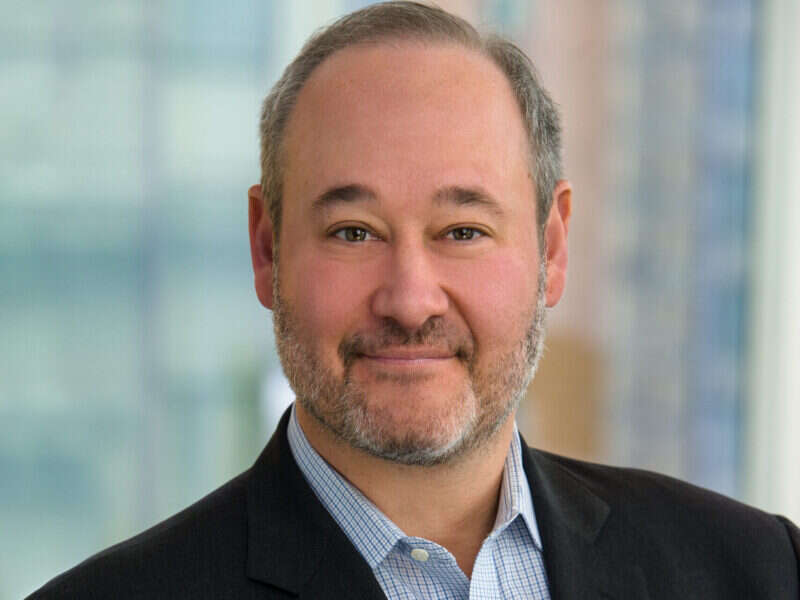
As the Oracle of Omaha reportedly once said, ‘It’s only when the tide goes out that you learn who has been swimming naked.’ Now that media has come down from the pandemic ‘high,’ recording several quarters of growth since beginning in 2nd half 2020, the water is most certainly receding. Ongoing recession, layoffs, budget cuts, consolidation, revenue/earnings downgrades are highlighting which organisations have built a truly sustainable and diversified business with an audience that is deeply connected with their products.
As we head into 2023, customer retention – brand partners, viewers, readers and subscribers – will become media’s primary challenge. In the case of a prolonged recession, publishers must position themselves as ‘must have’ or ‘must run with’ not a ‘nice to have’ or ‘nice to include’ – showing real value to advertisers and consumers. Ultimately, only those media companies that can achieve this will be able to grow, or in the longer run, exist. And, if I dare say, retain their ‘dignity’ as the tides ebb.
Nick Hugh, Telegraph Media Group
Chief executive
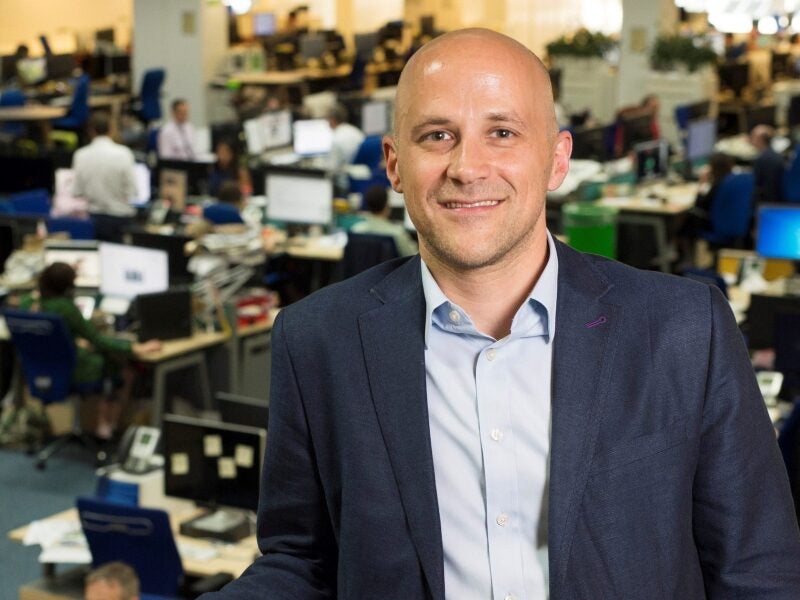
The rising cost of living will be the central theme for many businesses in 2023 – both in terms of inflation in costs as well as pressure on consumer spending. The most successful businesses will be those that have resilient business models that can adapt swiftly to the changing economic conditions – and indeed, find the opportunities that arise from those challenges.
At Telegraph Media Group we continue to be cautiously optimistic about the future. Whilst growth will be harder won, we will continue to offer subscribers real value from their subscription through quality journalism, and we will look to grow our base in the UK and beyond. Our investment in our journalism and our product portfolio will continue. The Telegraph has a broad offering across all its platforms from our app, to newsletters, podcasts and the many ways our readers engage with our journalism. In 2022 we relaunched our puzzles offering and launched Telegraph Wine Cellar, our first commercial subscription offering and further investments will follow in 2023. Our subscription model is central to the long term growth and sustainability of our business and that requires ongoing and permanent investment.
Rachel Corp, ITN
Chief executive
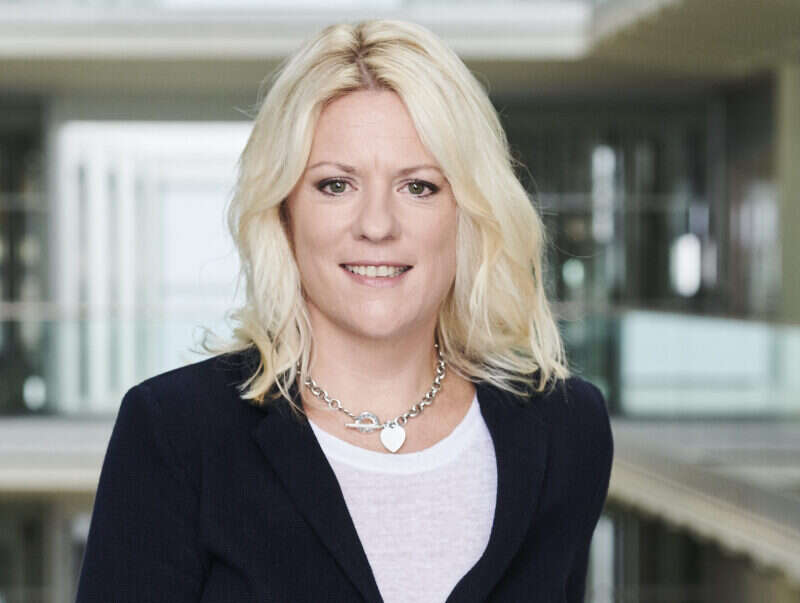
As we approach the end of 2022 with the news cycle still in full spin, the strikes and weather promise to see us peddling full throttle through to the New Year. Nothing new for journalists, who have had to become accustomed to the relentless news agenda, from a pandemic to Partygate; the war in Ukraine to an energy crisis. And our audiences? There is some cause for optimism. Whether it’s the boost to 5 News with a new hour-long programme; younger Channel 4 News viewers engaging with our online coverage of Ukraine, or the masses tuning into ITV News’ coverage of the Queen’s funeral – it’s clear that when it matters, people of all ages turn to us for our trusted, impartial reporting, wherever and however they choose to consume their news.
Next year however, we will all be challenged with the task of engaging audiences and tackling so-called ‘news avoiders’ as the cost of living crisis and other crisis escalate. To do this, we must continue to deepen our connections with the many and diverse communities around the UK in order to authentically reflect their stories; we must dig out the positive stories and we must continue to use our familiar onscreen faces and our trusted journalism to ‘bring the truth to life’. ITN’s new mission statement, part of our recent rebrand, reflects the purpose-driven nature of our organisation, something of increasing value to audiences as mis-and disinformation continue to drive doubt and division.
As an industry we await three pieces of legislation: the Media Bill, the Online Safety Bill and the Digital Markets and Consumer Bill. It’s the first major legislative agenda from DCMS in decades, and combined, the three bills have the power to shape the fortunes and future of public service media in the UK for decades to come. Our challenge is to continue to demonstrate the vital role of well-funded journalism in a functioning democracy; to ensure news is digitally prominent; and that we are able to extract fair value for our digital news content from platform providers. Meanwhile, I am really excited to see how ITV News on demand via ITVX develops over the next 12 months. It’s innovative, genuinely the first news service of its kind on a PSB streaming platform, and marks an evolution in our broadcasting beyond the traditional news bulletins.
Rebecca Miskin, DC Thomson
Chief executive

Over the last few years, we’ve been going through a massive transformational change at DC Thomson and one of our biggest challenges in the year ahead would be to think that, as economic headwinds become ever stronger, that now is the time to hunker down and wait out the storm. If anything, we should be accelerating that change.
This time last year, under the One DC Thomson strategy, we brought all our media trading business together. Since then, we’ve focused on integrating and aligning teams and creating more opportunities across the business to work collaboratively. It might seem like a small thing but having all our people pulling in one direction has been immensely powerful.
Crucially, this has given us valuable insight into where growth is happening, where we’re more challenged, where we need to be investing more and what we want to prioritise – in addition to addressing duplication or misaligned processes.
It has also given us clarity in how we build and reinforce our communities. It has shown us that the more we know about them (particularly through our investment in data and insight tech), the better we can serve them.
Many will face challenges next year and our communities need to know that we’re there for them. We have an active role to play – it’s about having their backs when times get tough and being reliable, reputable, authentic and inspirational. It’s for us to face into the headwinds. That means hearing more from our brands not less.
Sean Griffey, Industry Dive
Chief executive and co-founder
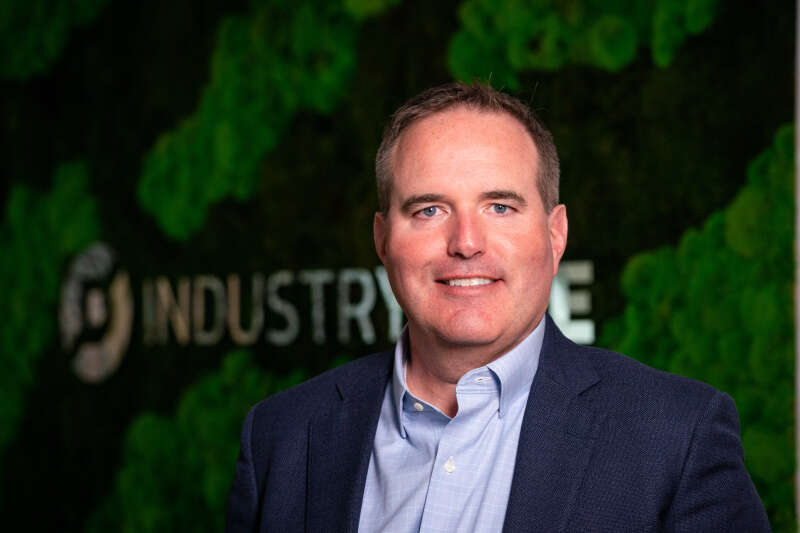
It’s clear that we’ve entered a period of economic uncertainty. Budgets are being cut, spending decisions are being delayed, and consumers are navigating the impacts of persistent inflation. This is putting media models of all types under economic pressure. It doesn’t matter if your business is built on subscriptions, advertisements, events, research or a mixture of all; all media companies will feel the impact in 2023.
While boom times are periods of great innovation, the challenge for the first half of 2023 will simply be about precise execution. How do we keep teams focused on functioning at a high-level? How can we operate without stubbing our toes? How do we make the most of every opportunity? Most importantly, how do we continue to drive growth in our long-term plans?
One thing is certain – any economic downturn won’t last. Inevitably, we’ll find boom times again. But this year is an opportunity for premier publishers to separate themselves from their competitors. It’s hard to differentiate yourself when things are easy but now is the time to prove your value to your audience and clients. At Industry Dive, we’ll continue to focus on the future, continue to invest in our long-term growth, and continue to launch into new markets. Now, more than ever, is the time to stay true to your vision and strategy.
Stephen Dunbar-Johnson, New York Times
President, international
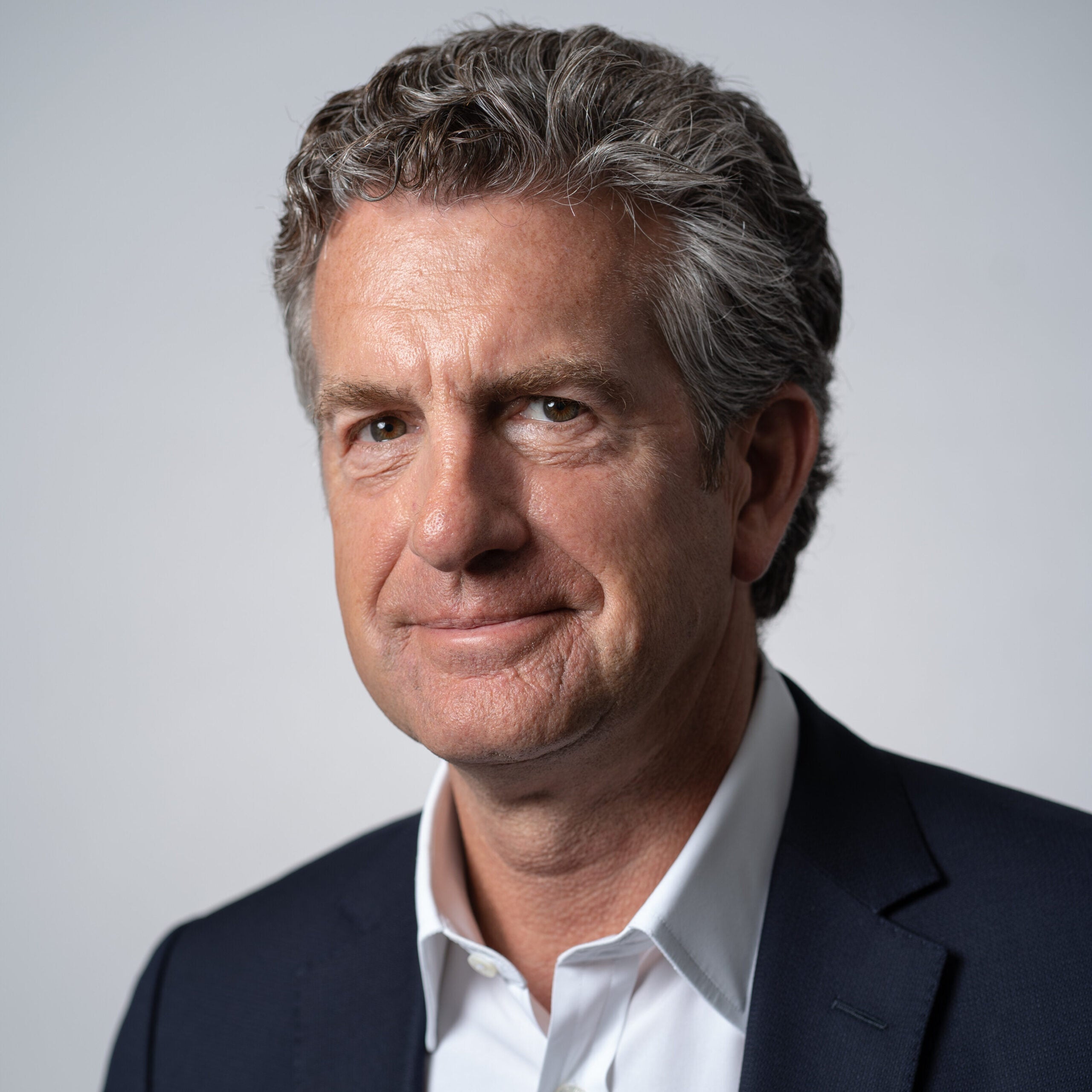
The past year has been especially turbulent given the war in Europe and the post pandemic fallout and we have continued to see much change across politics, society and industry. The economic headwinds facing the global economy will almost certainly continue to have an impact in 2023. Having a sustainable business model is therefore essential for maintaining a vibrant organisation to continue to cover this news and focusing on revenue, retention and engagement is a central part of this.
At The New York Times, we’ve continued our commitment to invest in our journalism. Good journalism is good business – they are mutually reinforcing. That will not change in 2023 and we believe strongly that the continuing investment in our newsroom will be integral to our ability to grow our digital subscription base and to continue to engage and retain the considerable number of subscribers we already have.
Our ambition is to leverage the power of our brand and news audience reach to also become a category leader in other areas that can occupy a big place in people’s lives, like games, cooking, shopping advice and sports.
That is the reason we acquired the wildly popular word game Wordle. It joins our portfolio of original, engaging puzzle games that delight and challenge solvers, and it gives them reasons to come to The Times every day. (And, no, we haven’t made it harder.)
We also acquired The Athletic this year, as we continue to pursue a broader portfolio of products to meet more needs for more people.
Our aim to continue leading in news and building strength in other categories is about unlocking our potential to become “the essential subscription”. A central part of this strategy will be offering a single, high-value New York Times subscription – or bundle – of interconnected products. We believe this will create an even more compelling value proposition for the enormous audience of potential consumers of our non-news products, and, this diversity of value will give people multiple reasons to engage with us every day, whatever the newscycle.
To attract the widest audience, we will continue to offer standalone subscriptions to each of our products. But by focusing on the bundle, we are providing the most value to our customers, and in turn, building the best opportunity to monetize the entirety of our platform.
Victoria Wakely, Bloomberg UK
National editor

Without turning to hyperbole, 2022 has simply been an extraordinary year for the UK and for people all around the world. But for us at Bloomberg News it’s been a very important year of significant investment in the UK and the major expansion of our team here.
Looking ahead, the issues around the global financial situation, the war in Ukraine and the resulting cost of living crisis will remain ever-present in 2023. The biggest challenge for all of us, whose job it is to educate and inform about what’s going on, will be to cover those issues in an innovative way that remains relevant for readers. This is not a typical journalistic plea for ‘more news’ but people naturally tire of the ‘crisis’ and look for positive, fresh approaches.
At Bloomberg we have unique access to data and analysis, and we will need to build on our new wealth and personal finance offers, as well as our expertise in others fields such as energy, or business, to give news subscribers content in the multiple formats that they need to navigate their lives, at home, at work and on the move.
The other challenge of 2023 is that I am not sure that we – as ordinary consumers – have fully absorbed the ways in which so many things we need are going to stay much more expensive than they were last year. The same might be said for the Government, with every part of the public sector trying to wrestle open the public purse. Covering this will require depth, skill, as well as sensitivities to the problems that people will face.
News needs to tell the straight, unvarnished truth but also find ways to keep people engaged, rather than switching off. Our aim is to help our readers feel informed, act objectively, and respond to a rapidly changing environment as they navigate through 2023.
William Lewis, The News Movement
Chief executive and founder
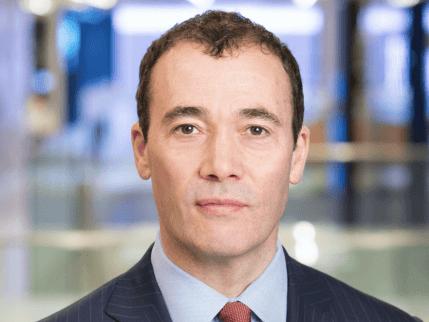
With the campaigning for the November 2024 US general election gearing up in 2023, it’s going to be vital to reach out to Gen Zs as many of them get ready to vote for the first time.
The News Movement’s team of young journalists in London and New York are going to meet that challenge by ensuring that young adult audiences have factual and trusted news on the platforms they use the most, from Tiktok to YouTube.
Email pged@pressgazette.co.uk to point out mistakes, provide story tips or send in a letter for publication on our "Letters Page" blog
